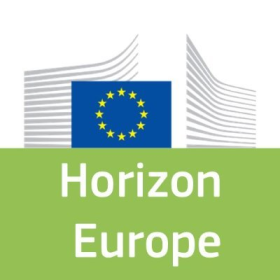Cílem tohoto tématu je zprovoznit výzkumnou datovou platformu UNCAN.eu, s níž se počítá v prováděcím plánu mise pro boj proti rakovině, prostřednictvím řady případů použití.
Typ žadatele: Konsorcia
Předpokládaný rozpočet projektu: 30 000 000 mil. € (bude podpořen jeden návrh)
Odkaz na výzvu
Odkaz na dokumentaci
Expected Outcome:
The aim of this topic is to operationalise the UNCAN.eu research data platform foreseen in the Cancer Mission implementation plan, through a series of use-cases. To this goal, proposals are expected to develop tools supporting researchers to access, manage and analyse cancer digital data, building among others on resources developed by EOSC4cancer.
Proposal(s) under this topic are expected to contribute to all of the following outcomes:
- The UNCAN.eu platform is developed by federating a network of cancer data nodes built on European and national computing infrastructures that link different cancer data holders across European countries.
- Use-cases focusing on the understanding of cancer initiation and progression are designed and implemented by multidisciplinary teams to develop tools and services for working with FAIR data.
- Researchers and clinicians use the electronic resources provided by the UNCAN.eu platform to access, manage and analyse data of heterogeneous types and belonging to different research domains at an unprecedented scale.
Scope:
The successful proposal should:
- Develop the UNCAN.eu platform by integrating and, where relevant, complementing existing or planned data nodes of European research infrastructures and/or other national infrastructures that may link various cancer data holders across Member States and Associated Countries (e.g. hospitals, research centres, comprehensive cancer centres, etc.). The number of Member States involved should be sufficient to demonstrate scalability and flexibility of the UNCAN.eu platform while allowing for stepwise onboarding of more countries.
- Provide tools, services and workflows to researchers across data nodes for dataset creation, standardisation, data discovery, secure access, management, visualization, harmonization, analysis and other functions as appropriate. This task should capitalise on EOSC4cancer's achievements, integrating and expanding as appropriate the available tools and solutions. It should also take advantage of the European Health Data Space and the European Open Science Cloud frameworks.
- Design and implement a rich and diverse portfolio of use-cases to inform, steer the development and demonstrate the validity of the UNCAN.eu platform. Use cases should focus on research questions that are in line with the Cancer Mission objectives and that may advance the understanding of mechanisms involved in cancer development and progression beyond the current state of the art. At least one use-case should target a cancer type with a 5-year overall survival of less than 50% from the time of diagnosis. A second use-case should target paediatric cancer.
- At the same time, use-cases should be functional to the design and implementation of UNCAN.eu to increase the diversity of digital tools and services available for cancer researchers. The mobilisation and integration of a large amount of research and real word data beyond current practice and a balanced participation of clinicians, disease experts and data scientists will be essential to achieve the objectives of this topic. Due attention should be paid to sex and gender, disaggregating the data as appropriate.
- The successful consortium should develop innovative approaches, to integrate and analyse heterogeneous data from multiple sources and different research domains, including the participation of the necessary interdisciplinary set of European infrastructures and national data nodes. In this regard, at least one use-case should integrate imaging, digital pathology and genomic data, using and/or contributing with new data sources to the Genomics Data Infrastructure (GDI) and Cancer Image Europe (EUCAIM).
- Give emphasis to data being managed and shared in line with the FAIR principles, and the concept of FAIR-by-design is applied wherever possible. The applicants must demonstrate that the necessary data sources are, or will be, effectively and timely available. During the project lifetime, new data sources that might become available at a later stage can be accommodated as well as allowing additional data holders to join the UNCAN.eu platform. Results must be open source and made available through a public repository under a permissive license. Open access data should be provided whenever possible.
- Give due consideration to, and establish appropriate links with, EU-funded initiatives such as EHDS-related governance and implementation actions, the European Network of Cancer Registries.
- Foresee to establish links with the successful proposal resulting from the topic HORIZON-MISS-2024-CANCER-01-02 ‘Support dialogue towards the development of national cancer data nodes'.
This topic requires the effective contribution of SSH disciplines and the involvement of SSH experts, institutions as well as the inclusion of relevant SSH expertise, to produce meaningful and significant effects enhancing the societal impact of the related research activities.
The Commission will facilitate coordination. Therefore, proposals should include a budget for networking, attendance at meetings, and potential joint activities without the prerequisite to give details of these at this stage. Examples are organising joint workshops, establishing best practices, joint communication or citizen engagement activities with projects funded under other clusters and pillars of Horizon Europe, or other EU programmes, as appropriate.
Successful proposal will be asked to join the 'Understanding' cluster for the Mission on Cancer established in 2022. The details of joint activities will be defined during the grant agreement preparation phase and during the life of the project.

